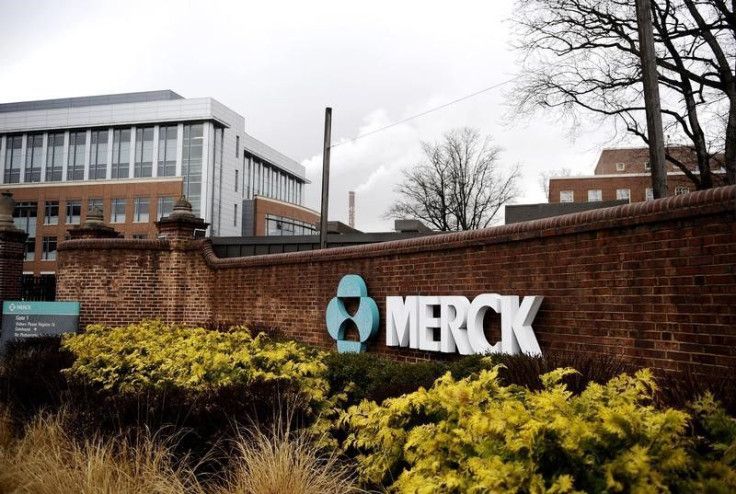FDA Expands Approval Of Merck's Keytruda To Lung Cancer

(Reuters) - The U.S. Food and Drug Administration on Friday approved Merck & Co Inc's immunotherapy, Keytruda, for patients with the most common form of lung cancer whose tumors produce a specific biological marker.
The FDA approval for Keytruda in advanced non-small cell lung cancer is for patients whose tumors express PD-L1, a protein targeted by the drug, and includes a companion diagnostic, made by a unit of Agilent Technologies Inc, to measure those protein levels. A Merck spokeswoman said clinical trials found that 22 percent of patients with this type of cancer had PD-L1 scores of at least 50 percent.
"The restricted label is generally in line with expectations and is likely to broaden over time as data from additional trials support Keytruda's efficacy in a larger patient population," JP Morgan analyst Chris Schott said in a research note.
The FDA decision "has the potential to transform the way that lung cancer is treated," Dr. Edward Garon, associate clinical professor at the University of California, Los Angeles and a lead investigator on Keytruda clinical trials, said in a statement.
Merck said the price of Keytruda for health insurers and other payers is around $12,500 per month, or $150,000 a year.
Keytruda and another similar treatment from Bristol-Myers Squibb Co called Opdivo are antibodies designed to block the interaction between PD-L1 and another protein, PD-1, whose natural function is to put checks on the immune system. By blocking the interaction, the drugs aim to enable the patient's own immune system to attack the cancer.
Wall Street analysts expect cancer immunotherapies to earn combined annual sales of over $20 billion by 2020.
Bristol's Opdivo is approved by the FDA to treat melanoma as well as squamous non-small cell lung cancer, a smaller subset of the disease, but without a requirement for protein testing.
Keytruda, now approved for both squamous and non-squamous non-small cell lung cancer, is also approved to treat patients with advanced melanoma. (http://1.usa.gov/1P9wW3p)
Lung cancer is the leading cause of cancer deaths in the United States with an estimated 221,000 new cases diagnosed and 158,000 deaths this year, according to the National Cancer Institute.
Shares of Merck rose 1.6 percent, or 77 cents, to close at $50.14 Friday on the New York Stock Exchange, while shares of Bristol-Myers rose 3.6 percent, or $2.18, to close at $62.23.
(Reporting by Natalie Grover in Bengaluru and Deena Beasley in Los Angeles; Editing by Bernadette Baum and Lisa Shumaker)



























